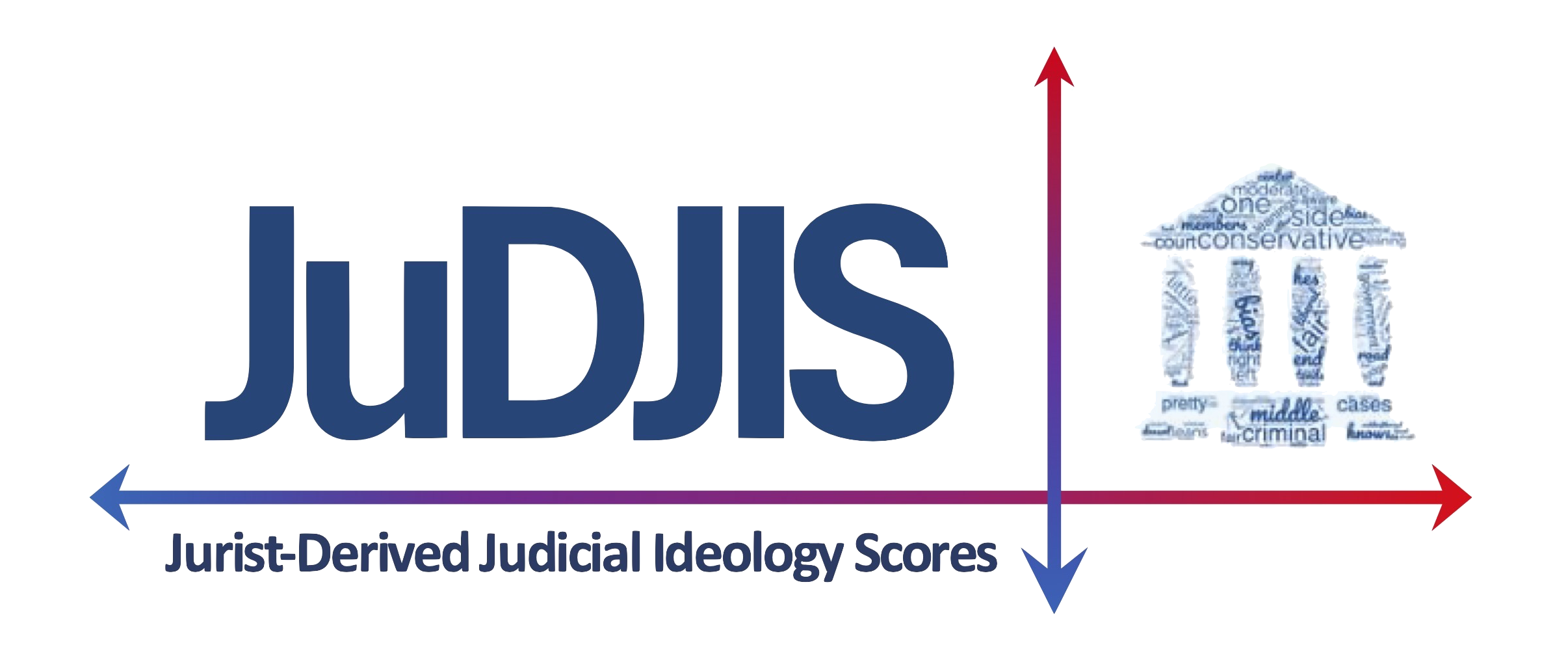
The Jurist-Derived Judicial Ideology Scores (JuDJIS) project is a new measure of judicial ideology — and other traits — that will locate on a single scale nearly every Article III U.S. federal judge serving since 1990 (approximately 4,900 judges). Project development began in 2015, and the first phase, Circuit: Ideology, was released in summer 2024; this release estimates the ideology of essentially every U.S. Court of Appeals judge who’s served from 1990-2022: at least 450 judges. The quantitative measure is derived from tens of thousands of qualitative evaluations — an ongoing, third-party initiative conducted over three decades — by a representative sample of thousands of legal experts, i.e., jurists, familiar with the judges’ approaches to judging.
The data:
- are dynamic (capturing any change in a judge’s ideology and other traits over time)
- are interval-level (theoretically taking any value between -3 and +3 inclusive)
- are multi-dimensional (estimating ideology and other traits outside of the standard left-right dimension)
- include standard errors and confidence intervals (indicating the degree of confidence in any particular point estimate)
By drawing on expert evaluations, this method hopes to overcome measurement issues such as endogeneity, sample bias, lack of dynamic capability, and difficulty measuring the lower courts. Notably, the JuDJIS scores are perhaps the first to take account of the subtle differences in judges’ opinions and other lawmaking behavior, allowing them to differentiate between the vast majority of judges in the dataset.
Analysis of a set of appellate-decision data indicates that the time-aggregated point estimates predict appellate outcomes more accurately than existing appellate-judge ideology measures. I hope the project will help to foster breakthroughs in fields such as judicial behavior, jurisprudence, and empirical legal studies, opening new avenues of research.
Special thanks to:
- Li Zhang, UVA Law Legal Data Lab, for extensive assistance with text analysis strategies
- Charles Crabtree, for countless invaluable consultations and conversations
- Megan Rosen, editor of Wolters Kluwer’s The Almanac of the Federal Judiciary, for providing most of the original source material
Questions or Thoughts? Contact Kevin Cope, Associate Professor of Law and Public Policy, University of Virginia